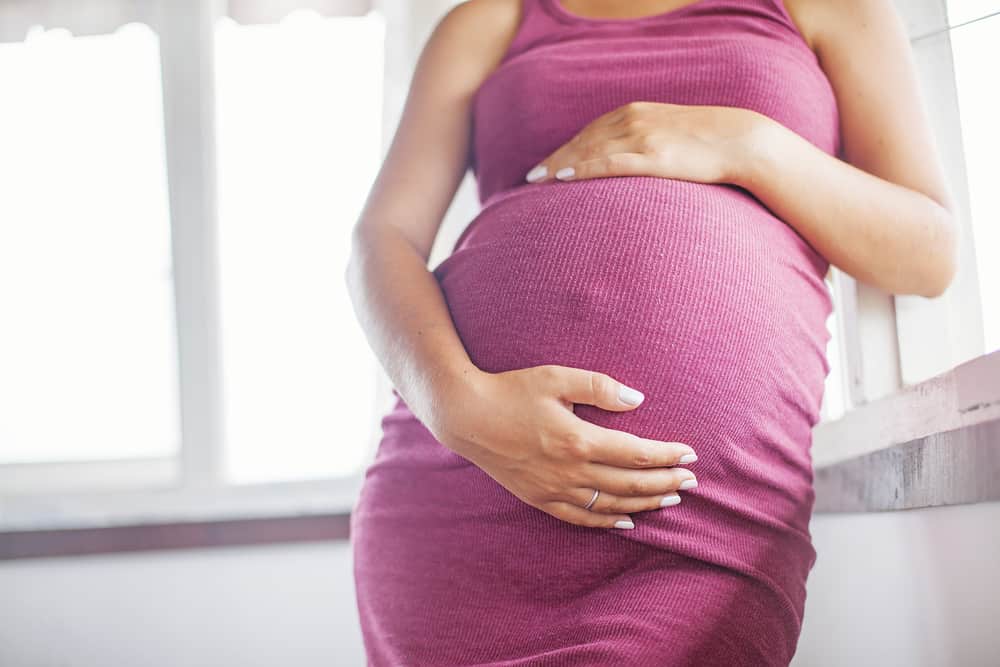
Table of Contents
Cramps during pregnancy can cause anxiety quickly. You may keep thinking if it’s just normal vaginal deepening and expansion or a sign of an eventual mistake. Due to the fact that the body changes quickly and many signs of cramps show up, the solution is not always clear. While cramps may sometimes show problems, mild and temporary cramps in your early pregnancy are typically common, rather than a sign of miscarriage.
If the pain you experience isn’t serious, sporadic, or followed by bleeding, you generally aren’t instantly worried. Here are a few hints to consider as you decide what to do.
Parenthood Bliss brings you an insightful article about cramping during pregnancy.
Is Cramping Normal During Pregnancy?
Oh, yes, indeed. Cramps while pregnant in the early stages are common and do not normally bear witness to a problem. It may be simply because you are growing a baby and have multiple (totally harmless) reasons including physical changes.
Here are a few common reasons for cramping in early pregnancy that will help you answer, “Is cramping normal during pregnancy? If yes, why?”
1. Implantation cramps:
Pregnancy–Cramping may be an early indication, like just one week or two after conception, of pregnancy. Having the egg fertilized into the Fallopian tube, it passes to the uterus and has to insert into the uterine wall. This fertilization can induce some early pregnancy cramping and may also cause light spotting.
2. Growing uterus:
You don’t even look pregnant, but in the first trimester, your body can change. When your womb expands and enters away, this growing baby can be linked by early pregnancy cramping.
3. Dehydration:
Not drinking plenty of water can sometimes induce your muscles to cramp.
4. Stomach problems:
When you are pregnant, gas, bloating, and indigestion are no play on words, so you can feel discomfort from nausea.
Cramping During Early Pregnancy
In early pregnancy, there are several major sources of cramping. These cramping early pregnancies include:
1. Ectopic pregnancy: Cramps During Pregnancy
Ectopic pregnancy happens when a uterine lining is implanted in a fallopian tube or somewhere else, causing very severe problems. A sign: on one side of the abdomen, the cramps are intense. You don’t have to think about ectopic pregnancy if you have an ultrasound validating your pregnancy.
2. Miscarriage: Cramps During Pregnancy
Pregnancy cramping can sometimes be due to miscarriage. The cramps are normally followed by bleeding with miscarriage. Check with your healthcare professional if you experience cramps and bleeding.
3. UTI: Cramps During Pregnancy
An inflammation in a urinary tract can cause stress-like dysfunction (a.k.a. infection of the bladder). And if you’re pregnant, you’re more likely to be so, however, it’s certainly a chance. In the early pregnancy, you could tell the distinction between a UTI and other cramps as you likely would have burning sensations when you pee. Typically in the lower abdomen, the pain of UTI is experienced.
What does cramping during pregnancy feel like?
Cramping in early pregnancy also feels like being pushed or stretched out into the intestine. Sometimes they are a tickling sensation rather than being painful and they may be like menstrual cramps. If you switch positions or sneeze or chuckle, you can note them. Possibly they are no cause for concern if they’re moderate and you don’t have any other signs.
But there are some indicators that your typical clash in early pregnancy might not be what you are witnessing and there is a problem. This includes:
- Strong pain
- The discomfort that doesn’t go away
- Cramping symptoms in the vagina
- Unexpected flushing or bleeding
- Diarrhea or other problems with the stomach
- Drowsiness or nausea
- Shoulder or neck soreness
- If you have any of the above or are concerned at all about your clamping during early pregnancy, contact your doctor immediately.
How long does cramping during pregnancy last in pregnant women?
The length of your cramping depends on the source. Implantation cramps, for example, normally last about a day, while UTI cramps last (and potentially worsen) before medical attention is received.
Early pregnancy cramps caused by the uterus are temporary so the cramps do not normally last for a long period of time. You should try to relieve the pain when you settle down or rest, take a warm dip, do soft yoga, chill, or even drink plenty of water if you experience occasional cramping in early pregnancy and do not have further complaints.
You should know that cramping in early pregnancy may be substituted with other obvious pregnancy side effects, like round ligament pain in the second trimester and Braxton Hicks contractions in the third trimester. Please ensure you are careful and have plenty of relaxation during your pregnancy.
Cramping during pregnancy could be quite a tough time for most pregnant moms, be it in their first trimester or as late as in their third and final trimester. Therefore, it becomes even more important for you to take care of yourself in these rough times whilst taking vital measures to prevent or aid the cramps while pregnant. However, Parenthood bliss understands the health of the expecting mothers and has taken a step ahead to help you with every detail regarding the trimester from as early as conceiving a baby to the time you walk out with the little member in your hand from the hospital and also them growing in responsible, energetic and skillful toddlers or kids. So, feel free to get in touch with us or leave a comment in the comments section in case of any concerns or doubts. We’re always happy to help!
However, head over to these articles that might occur in due course of your trimester. For instance, Morning Sickness and Nausea During Pregnancy, Headaches During Pregnancy, Appetite Loss During Pregnancy, Forgetfulness During Pregnancy, Sciatica During Pregnancy, Shortness of Breath During Pregnancy, Fever During Pregnancy, etc.
Cramps During Pregnancy Final Conclusion
It is typically natural for you to get spasms early in your pregnancy, so do not panic and get stressed. However, this does not mean that you should not put any questions to your physician for anything for that matter that might cause you trouble, particularly if it is your first baby or if it is different from previous pregnancies. In case of these cramps that you experience during your pregnancy, it’s best to go right. Also, make sure you have an account of how long these cramps last or how much your cramps intensify. Take these questions to your healthcare provider so they will be able to help you with your health care and the safety of both you and your baby.
You can try to aid as per the article above, but in case the intensity of the cramps increases to a higher level or you are not able to handle it, contact your doctor immediately. This will prevent any foreseen dangers and keep both of you in good health.
Pro Tip -
Make sure you maintain a journal or diary as and when you enter into each trimester. The best way is to note down everything you eat or do. This is because it helps you track down the initial cause of the problem and help you identify and get proper medication.
Cramps During Pregnancy FAQs
1. How can an expecting mother deal with cramps during pregnancy?
2. What are the typical symptoms of the initial pregnancy?
3. Is it possible for you to get muscle spasms in the second trimester of your pregnancy?
4. When must an expecting mother be worried about cramps during pregnancy?
Reviewed By -

Esha Chainani - Obstetrician and Gynaecologist
Dr. Esha Chainani is an Obstetrician, Gynaecologist, and laparoscopic surgeon who aims to break the stigma around women’s health by advocating an inclusive and open practice of obstetrics and gynecology and an author of several internationally published research papers and health articles in the media like the Swaddle.
She also founded Premaa, a non-profit to reduce maternal morbidity and eventual maternal mortality by providing lower-income pregnant women living in urban areas with cell phone access through an app that can feature an entire section about contraception as well for a whole gamut of reproductive health.
A panel for multiple health sessions including with the UN, USAID, BMC, gender at work, and multiple non-profit organisations, and is on the advisory panel of the South Indian medical students association.
On behalf of the editorial team at Parenthoodbliss, we follow strict reporting guidelines and only use credible sources, along with peer-reviewed studies, academic research institutions, and highly respected health organizations. To learn about how we maintain content accurate and up-to-date by reading our medical review and editorial policy.
Join 1000+ Parents Who Get Our Weekly Bliss!

Get expert parenting tips, baby product guides, and wellness advice—delivered straight to your inbox. No spam, just real, research-backed support on your parenting journey




